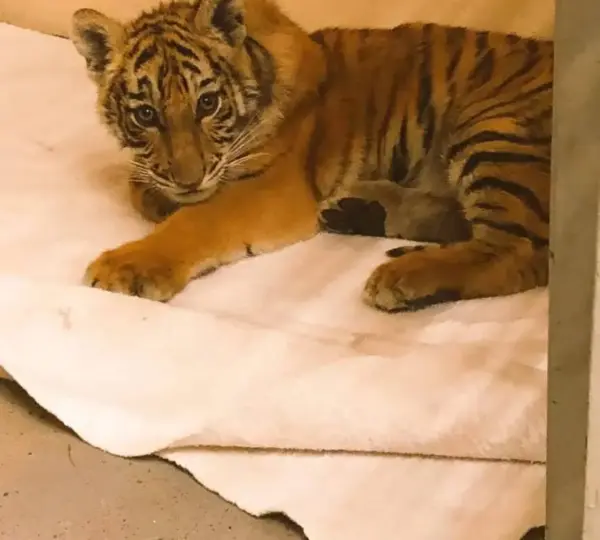The responsibilities of border agents are evolving. In addition to handling immigration and drug enforcement, they now encounter wildlife trafficking, which requires specialized training, protocols, and resources. Agents must recognize the signs of animal smuggling, often concealed amidst conventional criminal activity, and respond swiftly to protect endangered species.
For Zuko, the initial intervention was life-saving. As he recovers in a sanctuary environment, his story is shared widely, illustrating that wildlife trafficking is not a distant problem — it happens at borders across the nation. His survival serves as a powerful reminder for citizens, lawmakers, and law enforcement to remain vigilant against the illegal wildlife trade.

This narrative extends beyond a single cub abandoned in a duffel bag on the Rio Grande. It reflects a global struggle to protect endangered species and confront the organized criminal networks profiting from their suffering. For every rescued cub like Zuko, countless others remain hidden, neglected, or lost. The fate of these majestic animals relies on human determination to act decisively, enforce protections, and promote conservation.
Zuko’s story is also a plea to recognize the broader implications of wildlife trafficking. It calls on communities to look beyond borders and shadows, understanding that preserving endangered species demands collective action, commitment, and compassion. While the challenges are significant, Zuko’s rescue offers hope — proof that intervention, expertise, and humanity can prevail, even in the darkest situations.
Ultimately, Zuko’s journey from a fragile, abandoned cub to a symbol of hope underscores the urgent need for awareness, advocacy, and action. Every life saved strengthens the fight against extinction and the global networks that exploit wildlife. His story is a testament to resilience, the impact of human care, and the potential for positive change in a world where the stakes for endangered species have never been higher.